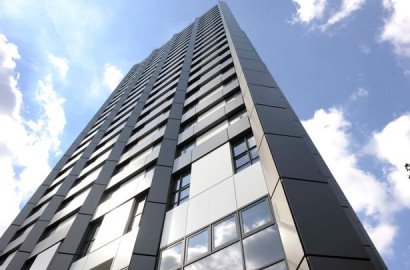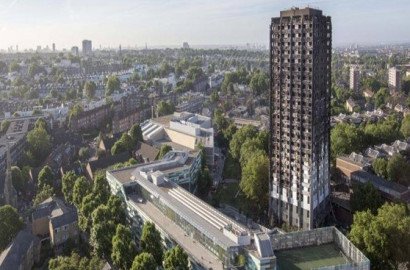
Extreme weather events like Hurricanes Helene and Milton heightened the need for repairs, retrofits and disaster-proof installations. These events also highlighted gaps in preparedness, prompting contractors to expand emergency response capabilities as well as revisited the issue of resilient, adaptable infrastructure across the country.
Labor shortages persisted, challenging contractors to find skilled workers. Many firms invested in upskilling current staff, apprenticeships, and initiatives like reverse mentoring to bridge generational knowledge gaps.
And, looking ahead to 2025, there are reasons to be optimistic.
“We see that consumers’ fiscal position getting better as we go through the end of this year and even better as we go deeper into 2025,” notes Brian Beaulieu, consulting principal and chief economist for ITR Economics. Beaulieu presented a keynote address to plumbing and HVAC contractors at Nexstar Network’s Super Meeting, which was held in late September. “We really think the second half of the year is going to be better than the first half of the year. How's it going to impact our industry? It's going to help our industry. We're already getting some upside signals from the ITR remodeling leading indicator. Permits are showing some strength. Existing home sales are still weak, but there are some early signs of that turning around. So all those are good precursors for business getting better the further we get into 2025.”
Jamie Gerdsen, chief people officer of TurnPoint Services, and a member of the board of directors of Nexstar Network, notes that AI is really the tip of the iceberg for contractors.

“AI in 2025 is like, ‘Do you have email,’ in 1996,” he says. “The real question is, ‘What's the real level of technology you want to integrate?’ And ‘What is technology that's cool, but does not add value?’ Contractors who do a really good job of navigating and executing in that arena are actually willing to learn fast. That’s the evolution — let’s learn really fast, let’s put stuff into play. People forget the fundamentals are still in play. It’s not AI, it’s augmentation. That’s what AI does.”
Martin agrees that AI will undoubtedly remain one of the most significant trends shaping the plumbing industry moving into the next year.
“From wholesalers and distributors to contractors, everyone can harness AI to optimize their business operations,” she explains. “Applications range from streamlining blog posts and job listings to enhancing customer service. Every company, regardless of its role in the industry, stands to benefit from the efficiencies and insights AI provides. As more businesses adopt AI, data management and the growth of data centers will also become a critical trend. Emphasis on data security is particularly relevant for companies like NIBCO, which is currently testing AI internally to ensure it can leverage these technologies while safeguarding its data.”
WATER CONSERVATION AND SUSTAINABILITY
Water conservation and smart water management will also play an increasingly significant role in 2025, according to Mark Croce, senior product manager at PVI and Andrew Macaluso, senior product manager at Lync, both Watts Water Technologies brands.
“Software and platforms that provide real-time data and analytics can help optimize boiler and water heating equipment performance, making it easier to monitor efficiency, anticipate maintenance needs and reduce energy consumption,” Croce says. “Facility staff are increasingly looking for — and expecting — tools like this to make informed decisions to drive cost savings and operational efficiency.”
"Water conservation will continue to be a significant focus, with growing interest in systems designed for water reuse and rainwater capture,” Macaluso adds. “At Lync, we see increased demand for these technologies, particularly in new building designs. This trend toward sustainable water management is becoming a key part of the design process for both residential and commercial buildings, reflecting a trend of broader commitment to conservation and resource efficiency in the plumbing industry.”
The big question in the plumbing and HVAC industry moving into 2025 is still about how best to decarbonize, Macaluso explains. “It’s not necessarily about converting directly to electric but more about improving existing systems. It's not just about replacing a gas-fired plant with a heat pump. It's also about exploring gains from tuning equipment, improving operational efficiency or implementing better reset schedules. People are searching for solutions in every corner right now.”
Related posts:
he Ministry of Housing, Communities & Local Government has published a green paper setting out proposals for reform of regulations relating to construction products. Publication of the Construction Products Reform Green Paper 2025 marks the start of a 12-week consultation...
Seven organisations involved in the deadly refurbishment of Grenfell Tower face possible exclusion from public contracts, the government has said in its response to the public inquiry.


 Las Vegas Home Sales Rise 6.7 Percent Annually in January, Condo Sales Dip
Las Vegas Home Sales Rise 6.7 Percent Annually in January, Condo Sales Dip
 Average Americans Spend 38 Percent of Monthly Income on Mortgage Payments
Average Americans Spend 38 Percent of Monthly Income on Mortgage Payments
 Greater Miami Area Residential Sales Dip in January
Greater Miami Area Residential Sales Dip in January
 Discover The New Luxury Boutique Hotel In Elora
Discover The New Luxury Boutique Hotel In Elora
 Ask A Designer™: Gillian Atkins’ Tips For A Modern Country Look
Ask A Designer™: Gillian Atkins’ Tips For A Modern Country Look